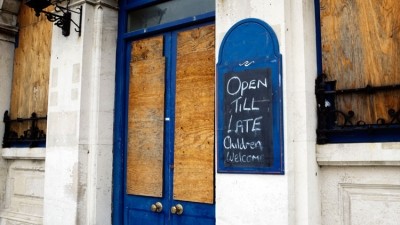'Serious concerns' over CO2 supplies as UK’s last fertiliser plant to pause production

Reports in the Financial Times and The Telegraph revealed that manufacturing company and fertiliser group CF Industries will wind down operations at its Billingham plant over the coming weeks, in addition to plans to permanently close its Chester plant.
It is thought that Britain may face a major shortage of carbon dioxide as a result.
Billingham is Britain’s only factory that produces the CO2 required for meat processing and the production of beer and soft drinks, and will be Britain’s only CO2-producing fertiliser plant following the closure in Chester.
CF Industries has said the Billingham shutdown is temporary, owing to the price of natural gas – which has more than doubled – making the production of ammonia uneconomical. However, the company has warned that price rises will continue for months to come.
Output from Billingham accounts for about 30% of the UK’s needs, according to industry experts. CF Industries said it would import ammonia from the US.
“The timing of this news couldn’t be worse as our pubs and brewers are already dealing with severe headwinds and pressures on their supply chains,” says Emma McClarkin, chief executive of the British Beer and Pub Association (BBPA).
“This decision raises serious concerns for the sustainable supply of CO2 to the brewing and pub industry.
“A guaranteed supply is essential for operations across pub and brewing businesses and this announcement comes at a time when they are already facing extreme cost rising that are threatening businesses and people’s livelihoods across the country.”
In September last year, amid soaring natural gas and wholesale energy prices, CF Fertilisers was forced to halt operations at Billingham.
At the time there were warnings that the food sector was facing a fresh shortage of CO2 gas that could ‘dwarf’ the crisis that led to widespread food and drink shortages in 2018.
The Government provided limited financial support for CF Fertilisers’ operating costs for three weeks to keep the plant running, and then in October the carbon dioxide industry came to an agreement to ensure CF Fertilisers on Teesside could continue to operate for three months.
A further agreement to ensure UK businesses had access to a sustainable supply of CO2 was announced in February this year.
The Government has said it is engaging in talks with the food and drinks industry and will hold urgent talks with meat and farming groups today (25 August).
“Industrial processes being turned off due to high energy costs is not new information. It wasn’t that long ago that Ministers had to pay CF Fertilisers to keep running,” says Darren Jones, chair of the Business, Energy and Industrial Strategy Committee.
“What has happened in the meantime? Why hasn’t the Government acted already given the very obvious energy crisis facing the country? Ministers must explain themselves.”



















